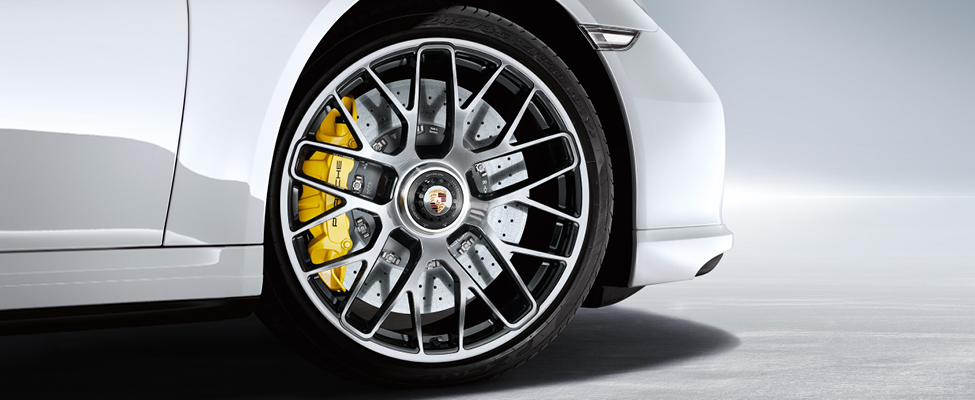The PSCB wasn’t available when I built my 2018 Macan Turbo w/PP but if it had been I’m sure I would have selected that option. Interesting info here:
One piece of technology literally makes or breaks a model on or off the track. Brakes. Find out how Porsche Ceramic Composite Brakes and Porsche Surface Coated Brakes pull out all the stops.

wyantgroup.com
the end of the article states there is roughly half the Brake fade from a 1,200 F PSCB than the regular iron system for a third the cost of a PCCB System. If I were tracking my vehicle that’s the brake system I’d choose.
Living in the southeast I definitely like the no rust aspect. I also like the 90% reduction in brake dust.
A couple of thoughts:
1. If the thickness of the coating is only .1mm (each side) does Porsche suggest the rotors be changed after a new rotor is worn .2mm?
2. If the minimum thickness of a standard iron rotor allows for more than .2mm wear from new then in theory can one assume standard iron brake performance after the initial .2mm wear down to the minimum thickness? If so, will the TU-Carbide compatible pads still work well enough or could one change only the pads (to standard iron rotor brake pads) and continue to use the TU-Carbide rotors until the minimum iron rotor thickness?
3. Since the front PSCB rotors on the 2021 Macan Turbo are 390 mm in diameter and my 2018 front iron brakes are 390 mm when my first brake job comes due can I retrofit my front brakes with PSCBs? From what I can get from the internet both systems use the same 6 piston calipers for the fronts?
Thanks in advance for any thoughts on this.








